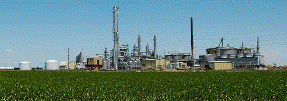Agricultural and Biological Systems Engineering, Department of

Adam Liska Papers
Document Type
Article
Date of this Version
9-2014
Citation
Published in Understanding and Assessing Climate Change: Implications for Nebraska. A Synthesis Report to Support Decision Making and Natural Resource Management in a Changing Climate, ed. Deborah J. Bathke, Robert J. Oglesby, Clinton M. Rowe, and Donald A. Wilhite (Lincoln, NE: The University of Nebraska-Lincoln, 2014), pp. 59–60.
Abstract
Climate change will lead to a probable increase in the occurrence of weather-related disaster events. These events could lead to declining revenue in the insurance industry, the world’s largest economic sector, with revenue of $4.6 trillion per year, or 7% of the global economy (Mills, 2012). Climatic events have accounted for 72% of global insurance claims and insured losses from 1980 to 2012, totaling $0.97 trillion (Munich Re, 2013). Estimated losses are ~0.5% of global Gross Domestic Product (GDP) and losses are increasing at ~6% a year in real terms (Lomborg, 2010). The United Nations Framework Convention on Climate Change estimated total costs could be 1-1.5% of world GDP in 2030, or $0.85-1.35 trillion per year in 1990 dollars (Lomborg, 2010). It was also recently estimated that $0.24-0.51 trillion worth of U.S. property will likely be below sea level by 2100 (Bloomberg et al., 2014).


Comments
Copyright (c) 2014 University of Nebraska-Lincoln.